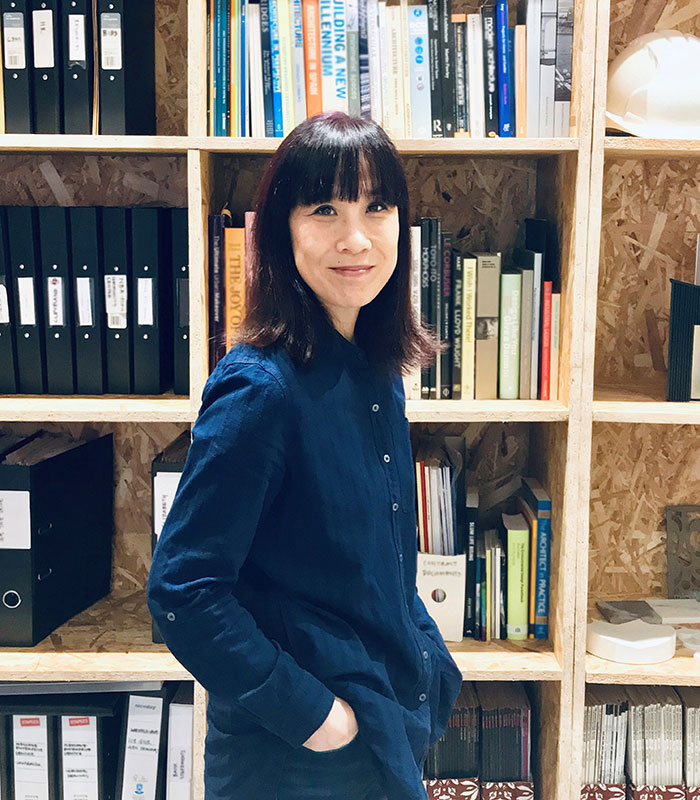Grace Choi, Director at Grace Choi Architecture Ltd and Equality, Diversity & Inclusion Champion at RIBA North East, talks about flexible working and work life balance.
"I set up practice in response to needing more flexibility because I had children. This was 10 years ago, landing in London with two children and a portfolio of award-winning work. Practices didn’t advertise for part-time roles and it was a different scene in regard to equality and work life balance. I think the climate and culture now are becoming gradually more progressive and we are making steps in the right direction, but we still have a long way to go as a profession towards gender parity. In small scale practices, the issues and pressures are quite different to larger practices — many architects set up because they seek flexibility and they want to be able to be in charge of their own time and resources, project work and programming. The reality, however, can be extremely challenging.
In small scale architectural practices, a particular challenge is dealing with having to be available all the time on limited resources. When you’re working on commercial projects, clients often expect you to be available round the clock, which is a pressure to manage. We operate a ‘buddy system’ so you’re never really working on a project all on your own — there is full transparency on a project. Monday is the prime time to sit down and go through resources, what we’ve got on in the week ahead and when you’re around — if you’ve got to go to a school event, for example. In a small practice, you can do that on an ad-hoc basis, but I’m intentional about working with the rhythm of the week, making sure that we’re in control of the week ahead in terms of planning, so there is understanding and openness, and we have an awareness of each other’s stress. That alleviates pressure from the unpredictability of projects which are running at the same time. Even though we work flexibly, the demands of running several projects simultaneously needs to be carefully managed."

"There is also a balancing act in managing clients’ expectations and being realistic setting goals and targets — that’s something we’ve had to be very firm about so that we’re never overstretching ourselves. We discuss the time needed to be allocated to projects, and when the work can be done before fee proposals are sent. When it comes to flexible working hours, we agree that we avoid taking two days off regularly on the trot. Contactors may be able to wait a day, but often not two, and we need to be realistic about the projects’ needs.
Having an open dialogue with clients also takes the pressure off expectations. I do a high percentage of planning, forward-thinking and scenario planning at the beginning of every week, and that takes a lot more of my time as the practice portfoilo has grown. But as a result, we work more efficiently and we’re happier because we know what to expect from each other in the practice. I’ve found that the culture of the practice requires leadership. If the directors are not modelling the way they want the rest of the staff to work, it is not going to filter through.
I recently launched Change the Record, a group led from RIBA North East to create, challenge, support, call-out and promote Equality, Diversity & Inclusion. In January 2020, we had our first JEDI Talk, which stands for Justice, Equality, Diversity and Inclusion. Here we invite anyone in practice or education to join in discussion and debate hot topical issues that occur in everyday practice. We discussed flexible working, work-life balance and parenting and had talks from employers and employees from both small practices and large-scale practices. It revealed issues across the board - I don’t think we cross-cultivate enough between different scales of practice in terms of the issues that we deal with.
One of the things that was alarming and recurring throughout the talks was the issue of guilt. When asked for a show of hands if anyone felt guilty due to working different hours or leaving early, the whole room put their hands up. Even though we’re all striving towards work/life balance, there’s an inherent attitude that looking after your kids has a negative impact on work. To overcome this, flexible working needs to become available to everyone — not just parents — everyone has to deal with real life, death and illness, and other interests, and as an industry, we need to be a bit more holistic. It needs to be the norm. We need to switch off, turn off emails, not answer the phone at home and put ourselves first.
The JEDI talks are creating a space where we can talk about what’s really going on in practice. Recognising that small practices struggle for technical support and resources, we talked about collaboration and support that might evolve, similar to the London Practice forum, where architectural practices share experience and resources including staff.
Doctors have locums, but we don’t seem to have anything similar in architecture. It’s great to have an arena where we’re able to engage in open dialogue, to provoke and challenge change."
Find out what other RIBA Chartered Practices are doing to address the gender pay gap.









